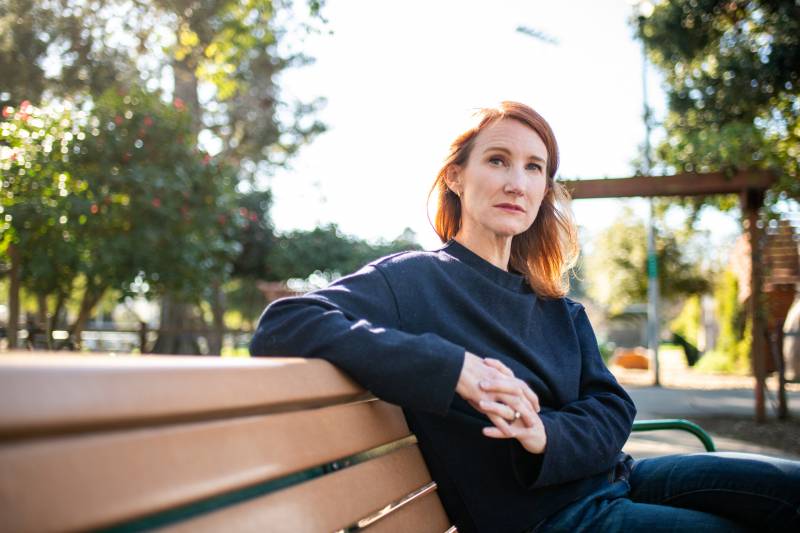Brian Watt: Was there a single moment when you decided it was time to step away from this?
Dr. Molly Phelps: I waited until my husband was in the shower and I threw open the door and I said, I’m leaving medicine and he’s like, ‘Oh, OK, good morning, honey.’ But he’s been wonderfully supportive.
I personally didn’t even know that I was having any thoughts of leaving. Even the day that I had the epiphany. I [had] stopped eating and went down to my junior high weight, and I stopped sleeping and was really kind of a shell of a human being. I spent the majority of last winter in our massive COVID tent that filled the ER’s parking lot. And typically, it was lined with two neat rows of gurneys. And every last one of them had someone in it who was struggling to breathe to some extent. And at the peak, the hospital itself was so full that in a nine-hour shift, I almost felt like Willy Wonka with one single golden ticket that I got to pick the person who was ill enough that they got to jump the line and actually have a bed inside the hospital proper.
And how much longer did you last?
My last shift in the ER was an overnight shift on Labor Day, and then I did part-time work in the vaccine clinic before I officially separated from the hospital entirely last week.
Was there a point where you felt like you and your colleagues were doing all you could to fight COVID, but maybe the general public wasn’t?
We were six months into having a life-saving, readily accessible free vaccine, and there was a segment of the population that deliberately chose not to get it and not to protect themselves and not to protect their community. And yet they didn’t want our advice to get the vaccine, but they still wanted our help as soon as they started feeling achy. It felt really insulting, and I also felt like I had given nearly everything that I had, I almost destroyed myself with the winter surge, and I would do it again, but I didn’t feel like I wanted to give the last bit of me that I had left to the unvaccinated.
And now, omicron, a variant that has spread so fast. What is it like to watch this surge from outside the hospital?
This is the disease that I literally bruised my cheeks and had blood on the bridge of my nose from my N95 [mask] to try not to get this virus. And yet, it’s on the other side of my door right now. Ironically, my wonderful, goody-two-shoes, rule-following 12-year-old, who even wears a mask during his school lunch, just came down with COVID last night. And my daughter, who is 9 years old, is achy.
If you’re not watching it from inside the hospital, you are now living with people who tested positive.
Exactly. It’s a different world.
So what now, if not medicine in the ER?
I am actually working on a memoir about my time on the front lines. So it has brought up a lot of old stuff and a lot of painful stuff. It feels like a really interesting and helpful opportunity to work through that.
I think we’re going to need these memoirs. I know it’s hard, but thanks for working through it.
Thank you so much.

